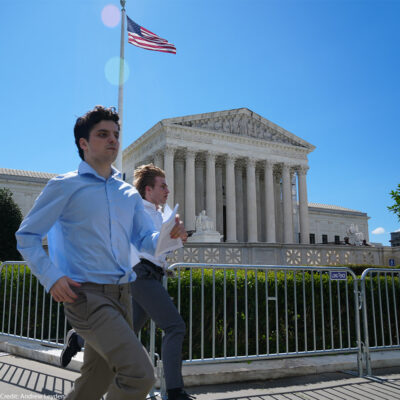Birth Control Access
The ACLU works in courts, legislatures, and communities to defend and preserve the individual rights and liberties that the Constitution and the laws of the United States guarantee everyone in this country.

The Latest
Explore More
What's at Stake
The ACLU seeks government policies that ensure access to affordable contraception; respect voluntariness; protect confidentiality; and prohibit sex discrimination, be it in the form of sanctioning religious refusals or treating contraception differently from other care.
It is imperative that health insurance programs recognize the obvious importance of contraception as a preventive service.
Additional Resources
Challenges to the Federal Contraceptive Coverage Rule (2013 resource)
Nearly 60 lawsuits have been filed across the country challenging the federal rule that employers include contraception in the insurance they provide employees. One of these many cases is likely headed to the U.S. Supreme Court. The cases now being heard pose the fundamental question: Does the right to religious freedom include the right of a business or institution to impose its views on a diverse workforce? We don’t think so.
Promoting Equality: An Analysis of the Federal Contraceptive Coverage Rule (2011 PDF)
This paper explains why the Obama administration’s rule ensuring that insurance plans cover contraception does not conflict with religious freedom protections. It also shows how the theory being pushed by opponents of the rule has far-reaching consequences.
HHS Ensures Affordable Contraception (2011 press release)
In August 2011, the U.S. Department of Health and Human Services announced that all new insurance plans must cover the full range of FDA-approved contraceptive methods, as well as other critical preventive care like screening and counseling for domestic violence, without cost-sharing. This new measure makes effective birth control more affordable for millions of women by eliminating extra out-of-pocket expenses. The policies were recommended by an expert panel of the Institute of Medicine.
Military Lifts Ban on Emergency Contraception (2010 blog piece)
In 2010, the U.S. Department of Defense quietly made public its decision to require that emergency contraception (EC or Plan B) be available at all overseas military facilities.
Ensuring Access to Emergency Contraception After Rape (2007 resource)
Throughout the country, many emergency care facilities fail to offer women who have been raped the treatment they need to prevent pregnancy. Emergency contraceptive (EC) pills, sometimes referred to as the “morning-after pill,” can prevent pregnancy after unprotected intercourse, including rape.
Religious Refusals and Reproductive Rights: Accessing Birth Control at the Pharmacy (2007 PDF)
The ACLU seeks government policies that ensure access to affordable contraception; respect voluntariness; protect confidentiality; and prohibit sex discrimination, be it in the form of sanctioning religious refusals or treating contraception differently from other care.
It is imperative that health insurance programs recognize the obvious importance of contraception as a preventive service.
Additional Resources
Challenges to the Federal Contraceptive Coverage Rule (2013 resource)
Nearly 60 lawsuits have been filed across the country challenging the federal rule that employers include contraception in the insurance they provide employees. One of these many cases is likely headed to the U.S. Supreme Court. The cases now being heard pose the fundamental question: Does the right to religious freedom include the right of a business or institution to impose its views on a diverse workforce? We don’t think so.
Promoting Equality: An Analysis of the Federal Contraceptive Coverage Rule (2011 PDF)
This paper explains why the Obama administration’s rule ensuring that insurance plans cover contraception does not conflict with religious freedom protections. It also shows how the theory being pushed by opponents of the rule has far-reaching consequences.
HHS Ensures Affordable Contraception (2011 press release)
In August 2011, the U.S. Department of Health and Human Services announced that all new insurance plans must cover the full range of FDA-approved contraceptive methods, as well as other critical preventive care like screening and counseling for domestic violence, without cost-sharing. This new measure makes effective birth control more affordable for millions of women by eliminating extra out-of-pocket expenses. The policies were recommended by an expert panel of the Institute of Medicine.
Military Lifts Ban on Emergency Contraception (2010 blog piece)
In 2010, the U.S. Department of Defense quietly made public its decision to require that emergency contraception (EC or Plan B) be available at all overseas military facilities.
Ensuring Access to Emergency Contraception After Rape (2007 resource)
Throughout the country, many emergency care facilities fail to offer women who have been raped the treatment they need to prevent pregnancy. Emergency contraceptive (EC) pills, sometimes referred to as the “morning-after pill,” can prevent pregnancy after unprotected intercourse, including rape.
Religious Refusals and Reproductive Rights: Accessing Birth Control at the Pharmacy (2007 PDF)




